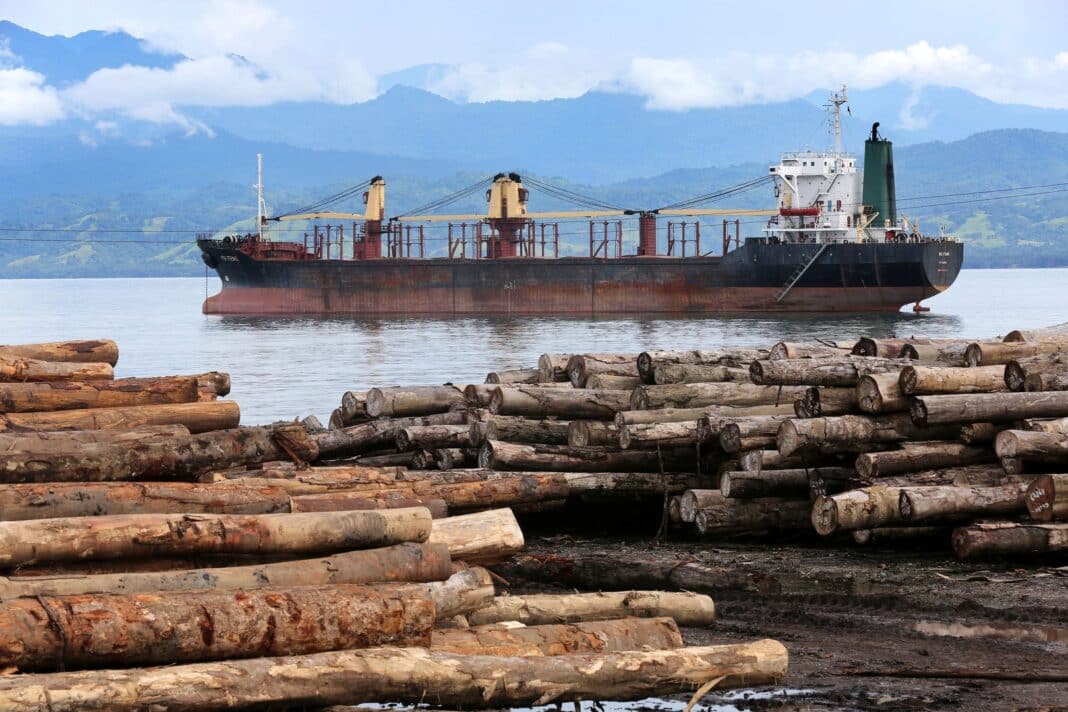The New Zealand government is making major changes to the Legal Harvest Assurance system, introduced as part of the NZ Forests Bill last year – starting with the mandatory requirement for traders and forestry advisers to register with the government.
Instead, a new voluntary scheme will be operated through the New Zealand Institute of Forestry, the country’s peak body for forest professionals. Now, the government will refund any fees or levies paid by the Ministry of Primary Industries.
It comes as the Chris Luxon government vows to cut red tape with Todd Mcclay, New Zealand’s Forestry Minister, with “the current system failing to deliver outcomes and placing unnecessary costs on forest businesses.”
“The repeal will be delivered at speed, with the changes coming into effect before July 1st 2024,” Minister Mcclay said. Before adding, “the previous government legislated a compulsory registration scheme that has failed to deliver outcomes and makes ongoing regulation unwarranted.”

Minister Mcclay says the u-turn honours the Luxon “pre-election commitment to cut wasteful spending and costs and rebuilding in the forestry sector…it is important that we reduce unnecessary regulation and compliance costs where possible.”
NZ Forests Bill 2023: Move to End Illegal Timber Trade
The bill, introduced by the former Christopher Hipkins government, aligns with laws in Australia, the US, the EU, Vietnam, China, Indonesia, Japan, and South Korea and establishes a regulatory framework to ensure the legality of harvested timber entering the New Zealand supply chain.
According to the former Forestry Minister Peeni Henare, “Illegal timber trading accounts for 15 to 30% of the total global timber trade, with more than 50% of tropical deforestation coming from Central Africa, the Amazon Basin, and Southeast Asia.”
The legislation introduced a ‘legal harvest assurance system, “requiring forest owners or those in charge of the harvest to provide legal harvest information to the log buyer.”
In a statement by the NZ Ministry of Primary Industries, the legal harvest assurance system ensures that New Zealand’s timber trade does not exacerbate the global issue of illegal logging,” they said, adding that “entities involved in the harvesting, trading, or processing of indigenous and exotic timber must take steps to ensure its legal origin.”
How the System Could Work:
- Registered operators must develop a due diligence plan outlining their strategy to ensure the legality of timber products. This plan may include private certification schemes such as FSC and PEFC.
- Forest owners or harvesters must provide legal harvest statements and supporting evidence upon request.
- Importers need to use their due diligence system to verify the legality of timber products before importing them.
- All parties must pass a “fit and proper person” test and make an annual compliance declaration.
- Documentation must be meticulously maintained, and the timber must be followed through every stage of the supply chain.
- Exporters can apply for an exporter statement from MPI to facilitate trading and market access.
- Log traders registered under the Forests Act 1949 must also register under the Legal Harvest Bill to maintain regulatory compliance.
- The new law highlights New Zealand’s commitment to global efforts to combat illegal timber trading. Everyone from forest owners to log traders, processors, and importers is required to verify the legality of their timber.
At the time, former Minister Henare pointed out the two-fold benefits of this legislation, noting, “This system is beneficial to businesses as it demonstrates their due diligence on the legality of their timber products. Additionally, it ensures that timber products imported into New Zealand are sourced from legally harvested forests.”
The law includes a transition period of three years for initiation and an additional year for compliance. During this period, the Ministry for Primary Industries and Te Uru Rākau – New Zealand Forestry Service will collaborate with the industry to establish practical and robust regulations.
- Learn more about the NZ Harvest Assurance System here.






